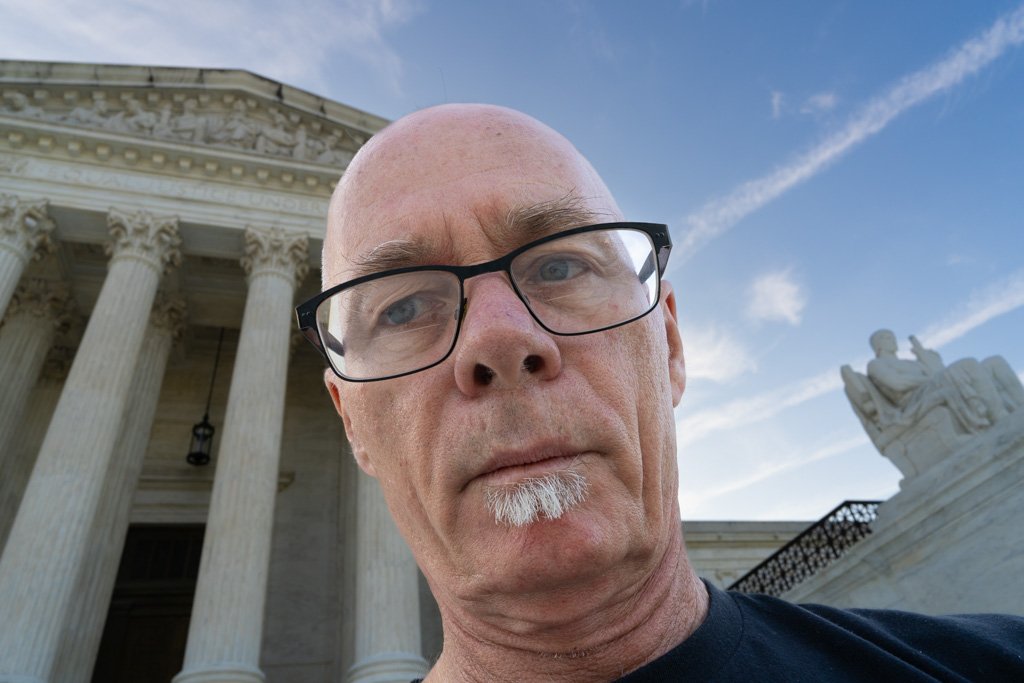The photos gathered in this exhibition were taken between 2010 and 2017. During these years I became involved with a homeless shelter called Peachtree-Pine, which was a twenty-minute walk from my downtown office at Georgia State University. The shelter was then at the center of a political battle between downtown business interests who wanted to shut it down and the Metro Atlanta Task Force for the Homeless that fought to keep it open. As a member of the Task Force’s board of directors, I was able to photograph the people who resided at the shelter, the powerful interests arrayed against them and the rallies and protests that were organized to save the shelter. As I reflect on the images you see here, I am convinced that they speak directly to the question of the “body politic.” To be unsheltered is to be exposed to public view in the most literal and degrading sense imaginable. The body and its most basic functions are stripped of the protective covering afforded by the domestic space that most of us take for granted. Now that the US Supreme Court has ruled in Grants Pass v. Johnson that municipal authorities can fine, ticket and arrest people for “camping” outside, not even the domestic space afforded by a simple tent is admissible. I hope these pictures will contribute to a discussion of how the contemporary crisis of affordable housing intersects with the most intimate politics of the body.


